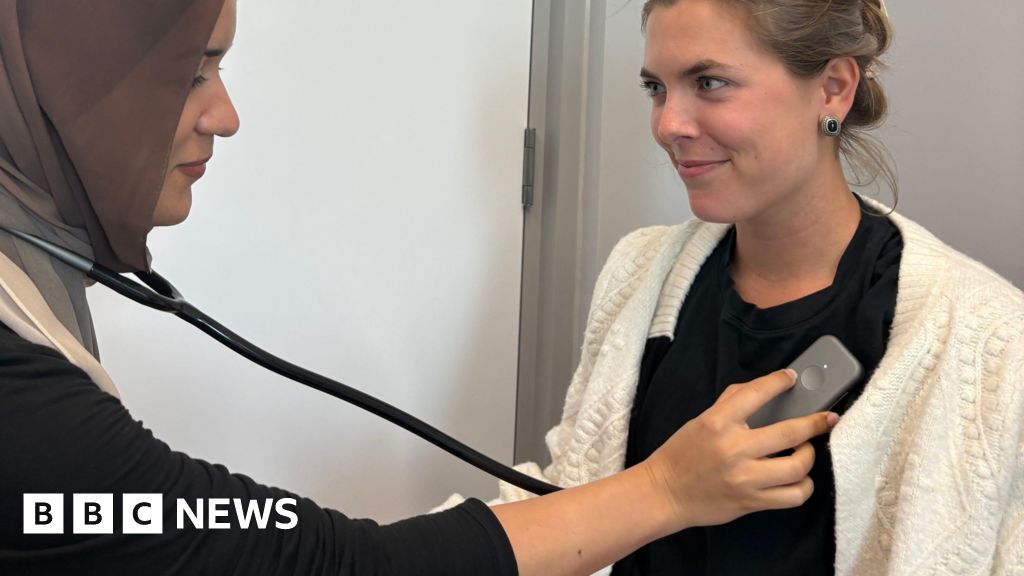
"The new device replaces the traditional chest piece with a device around the size of a playing card. It uses a microphone to analyse subtle differences in heartbeat and blood flow that the human ear cannot detect. The study by Imperial College London and Imperial College Healthcare NHS Trust involved saw more than 12,000 patients from 96 surgeries examined with the AI stethoscope. They were then compared to patients from 109 GP surgeries where the technology was not used."
"They were 2.33 times more likely to be diagnosed with heart failure in the next 12 months, researchers said. Abnormal heartbeat patterns, which have no symptoms but can increase stroke risk, were 3.5 times more detectable with the AI stethoscopes, while heart valve disease was 1.9 times more detectable. The tool could be a "real game-changer" resulting in patients being treated sooner, the researchers say"
An AI-powered stethoscope replaces the traditional chest piece with a playing-card-sized device that uses a microphone to analyse subtle heartbeat and blood-flow differences inaudible to the human ear. More than 12,000 patients from 96 GP surgeries were examined with the device and compared to patients from 109 surgeries without it across 205 GP surgeries in west and north‑west London. Use of the device produced higher detection: 2.33 times more heart failure diagnoses within 12 months, 3.5 times more detection of abnormal heartbeat patterns, and 1.9 times more detection of heart valve disease. Earlier detection enables earlier treatment and improved patient outcomes.
Read at www.bbc.com
Unable to calculate read time
Collection
[
|
...
]